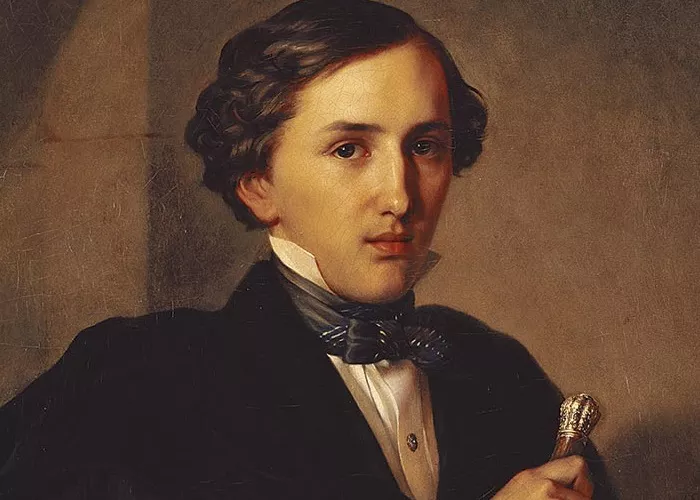The 18th century in Russia was a time of immense cultural growth and literary transformation. Influenced by Western Europe, Russian poetry began to blossom with new ideas, themes, and forms. The Age of Enlightenment brought about a blend of classical learning, personal expression, and a spirit of exploration. This period laid the foundation for the development of Russian literature that would flourish even more in the 19th century. Below, we explore 11 famous Russian poets of the 18th century, their contributions to literature, notable works, and lasting influence.
11 Famous Russian Poets of the 18th Century
1. Vasily Trediakovsky (1703–1769)
Literary Contributions
Vasily Trediakovsky was a pioneering figure who helped shape modern Russian poetic language. He was known for introducing syllabic and syllabo-tonic versification, which brought Russian poetry closer to European standards. His works often explored classical themes and set the groundwork for future poets.
Notable Works
Trediakovsky’s most notable work is “New and Brief Way to Compose Russian Verses”, which laid the foundation for Russian poetic reform. His translation of “Telemachida” showcased his attempt to adapt classical forms into the Russian language.
2. Mikhail Lomonosov (1711–1765)
Literary Contributions
Mikhail Lomonosov was not only a poet but also a scientist and a polymath. His literary works were instrumental in developing the Russian language, as he seamlessly blended scientific, philosophical, and poetic ideas. Lomonosov was known for formalizing the syllabo-tonic system in Russian poetry.
Notable Works
Lomonosov’s “Ode on the Day of the Ascension of Her Imperial Majesty Elizabeth Petrovna” is celebrated for its grandeur and patriotic fervor. His collection of odes and poems showcased his mastery of both classical and modern themes.
3. Gavrila Derzhavin (1743–1816)
Literary Contributions
Gavrila Derzhavin was a towering figure of 18th-century Russian poetry. His works were unique in their ability to merge personal expression with the grandeur of odes. Derzhavin was known for infusing his poetry with themes of power, beauty, and philosophical musings.
Notable Works
Derzhavin’s “Ode to God” is perhaps his most famous work, blending religious devotion with a majestic exploration of creation and human existence. “Felitsa” is another notable piece, praised for its satirical and affectionate depiction of Empress Catherine II.
4. Alexander Sumarokov (1717–1777)
Literary Contributions
Alexander Sumarokov was an important figure in Russian neoclassicism. He was both a poet and a dramatist, contributing significantly to the formalization of Russian literature. Sumarokov emphasized the importance of reason and order, aligning with Enlightenment ideals.
Notable Works
Sumarokov’s poetry collection and his dramas, such as “Khorev”, showcased his talent for combining literary elegance with dramatic storytelling. His lyrical works often explored themes of love and patriotism.
5. Nikolay Novikov (1744–1818)
Literary Contributions
Nikolay Novikov was more than just a poet; he was a journalist and an influential figure in Russian intellectual circles. His poetry often reflected his interest in social issues and his commitment to the Enlightenment ideals of knowledge and freedom.
Notable Works
Although known primarily for his work in journalism and satire, Novikov’s poetic contributions included reflective and socially critical pieces. His periodicals such as “Truten” (The Drone) often featured poetic excerpts that critiqued societal norms.
6. Ivan Khemnitser (1745–1784)
Literary Contributions
Ivan Khemnitser was a fabulist and poet who brought new life to the fable form in Russian literature. His work was characterized by wit, moral lessons, and an accessible style that appealed to a wide audience.
Notable Works
Khemnitser’s collection, “Fables and Tales”, was widely popular and included works that cleverly critiqued human follies and societal issues. His fables often used animals to personify human characteristics and deliver moral lessons.
7. Vasily Kapnist (1758–1823)
Literary Contributions
Vasily Kapnist was known for his lyrical and satirical poetry that often highlighted the socio-political issues of his time. His poetry blended personal emotion with a sharp critique of the political landscape.
Notable Works
Kapnist’s “Ode to Slavery” is a powerful critique of the serfdom system in Russia and remains one of his most famous works. His poignant and fearless voice made his works resonate with those who longed for social change.
8. Denis Fonvizin (1745–1792)
Literary Contributions
Denis Fonvizin is best known as a playwright, but his poetic contributions also reflect his skill in satire and social critique. Fonvizin’s works often explored themes of human folly, societal norms, and Enlightenment ideals.
Notable Works
Fonvizin’s “The Minor” (Nedorosl), though primarily a play, includes poetic dialogues that underscore the absurdities of Russian aristocracy. His satirical poems were equally sharp in their wit and social commentary.
9. Alexei Merzlyakov (1778–1830)
Literary Contributions
Alexei Merzlyakov was a poet, critic, and professor who played an essential role in nurturing the next generation of Russian poets. His works often focused on the ideals of love, nature, and personal reflection.
Notable Works
Merzlyakov’s poems such as “Evening Reflections” and his translations of European poetic works showcased his commitment to bringing varied poetic expressions to Russian readers.
10. Vasily Pushkin (1766–1830)
Literary Contributions
Vasily Pushkin, an uncle to the famous Alexander Pushkin, was a poet known for his lighter, humorous works. His poetry was rich with satire and often dealt with themes of love and society.
Notable Works
Pushkin’s “A Dangerous Neighbor” is one of his more famous works, exemplifying his playful and witty style. His poems were known for their humor and elegance, offering a refreshing contrast to more serious contemporaries.
11. Gavrila Kamenev (1772–1803)
Literary Contributions
Gavrila Kamenev was known for his romantic poetry that captured the beauty of nature and the depth of human emotion. His works often carried a melancholic tone, reflecting the uncertainties of life and love.
Notable Works
Kamenev’s poem “Despair” is notable for its emotional intensity and lyrical beauty. His collections featured themes of love, loss, and the sublime aspects of the natural world.
Conclusion
The 18th century in Russian poetry was marked by a profound shift toward new forms, themes, and expressions influenced by the European Enlightenment and local traditions. Poets like Trediakovsky and Lomonosov laid the groundwork for a structured approach to poetry, while Derzhavin, Kap.

